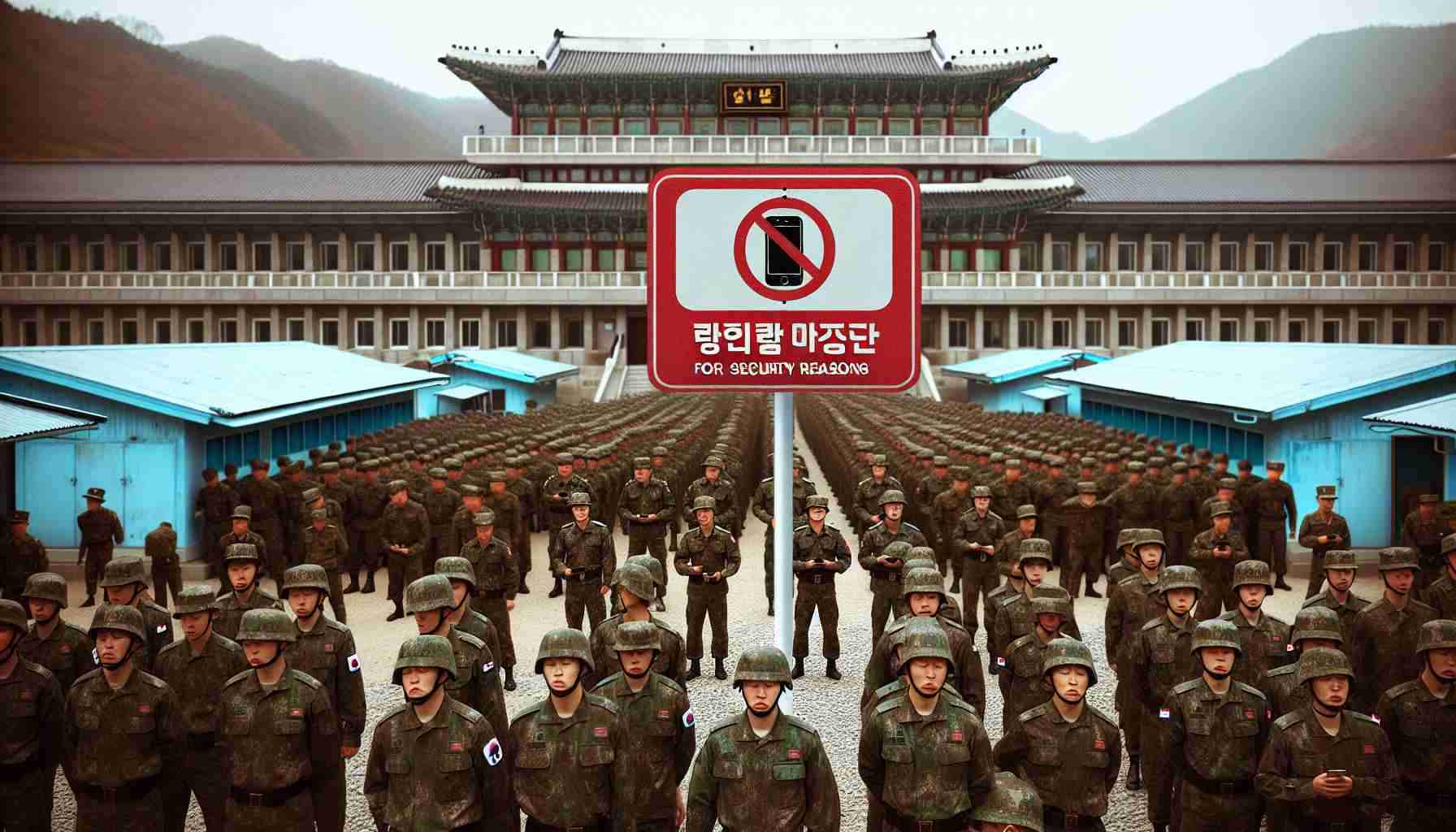Military Bases in South Korea Prohibit iPhones Over Security Concerns
South Korean military authorities have made a decisive move in the interest of national security by prohibiting the use of iPhones within their military installations. This stringent measure is being enforced due to the devices’ inability to disable microphone recording features, a crucial factor in safeguarding against espionage activities.
The ban, strictly applicable to military bases, was initiated as a response to potential information breaches that could be facilitated through voice recordings. It has been reported that an internal memo within the defense quarters was circulated, outlining the new regulation that is set to commence on June 1. This directive explicitly names iPhones as barred items, emphasizing the risk associated with these devices that fail to align with the guidelines set by the National Defense Mobile Security, South Korea’s military-operated device management system.
Samsung Devices Given the Green Light
While iPhones find themselves on the blacklist, Android smartphones, predominantly those manufactured by Samsung Electronics, have been cleared for use. This exception can be linked to the compatibility of Android devices with the military’s requirements that allow third-party applications to take control of internal functions such as microphone management.
Debates Emerge Over the Influence of Nationalism
The decision has sparked discussions within and beyond South Korea, with some attributing the move to patriotism and the influence of Samsung’s market dominance in the country. Considering the reality that 70% of military personnel already use Samsung devices, the ban, though far-reaching in its implications, is seen by many as largely symbolic.
Yet, the overall consensus among experts and military insiders suggests that the threat of information leakage to North Korea is a palpable concern, and stringent operational security measures are justified. The virtual ban on microphone use through mobile devices illustrates the gravity of security that South Korea upholds in the face of constant tensions with its northern neighbor.
Security Measures in the Digital Era
The banning of iPhones from South Korean military bases underscores the increasing complexities of security concerns within the digital era. As smartphone technology advances, so do the capabilities of these devices to be used as tools for espionage. Modern smartphones are equipped with numerous sensors and features, like GPS, cameras, and microphones, which can potentially be exploited to gather intelligence.
Key Questions and Responses
– Why are iPhones specifically targeted by this ban? iPhones are targeted because their operating systems and built-in security features do not allow third-party applications to control the microphone, a function the South Korean military deems necessary for preventing unauthorized audio recording and potential information leaks.
– What could be the implications for international manufacturers? Such a move might push international manufacturers to tailor their devices’ security features to meet specific national security requirements of different countries, or it could discourage their use within certain jurisdictions altogether.
– Key Challenges and Controversies
A major challenge posed by this ban is balancing the need for security with the convenience and preferences of military personnel. Some service members may prefer the user interface or features of iPhones, and this ban may force them to switch devices unwillingly. Additionally, there may be controversy about market fairness, as a ban on specific manufacturers can seem protectionist or give the impression of favoring domestic companies over foreign ones.
Advantages and Disadvantages
Advantages:
– Enhances operational security by reducing the risk of unauthorized audio recording and data breaches.
– Promotes the use of devices that comply with the military’s security standards.
– Encourages technology manufacturers to prioritize security features in their product development.
Disadvantages:
– Limits the choice of technology for personnel, potentially affecting morale and convenience.
– May be perceived as protectionist, favoring domestic companies over international brands.
– Could create logistical challenges in implementing and enforcing the ban effectively.
If you would like to explore more about topics related to South Korea and its military, you can visit South Korea’s Ministry of National Defense website by following this link: South Korea Ministry of National Defense. For information about Samsung, the electronics company that manufactures the approved devices, please visit their main page: Samsung. Please note, due to my last update being in April 2023, these links must be validated for current accuracy.
